[Reading level: B2 – Upper Intermediate]
For countless generations, humans have always wondered: why, among the vast universe with billions of stars and planets, is Earth the only true home of life? The answer lies in the miraculous conditions that this planet possesses. From the perfect distance from the Sun, the proper speed of rotation, the reasonable tilt of its axis, to the atmosphere, the oceans, the magnetic field, and even its natural satellite – the Moon – everything comes together in harmony like a flawless symphony. This fragile balance has made Earth the only place capable of nurturing such rich and enduring life.
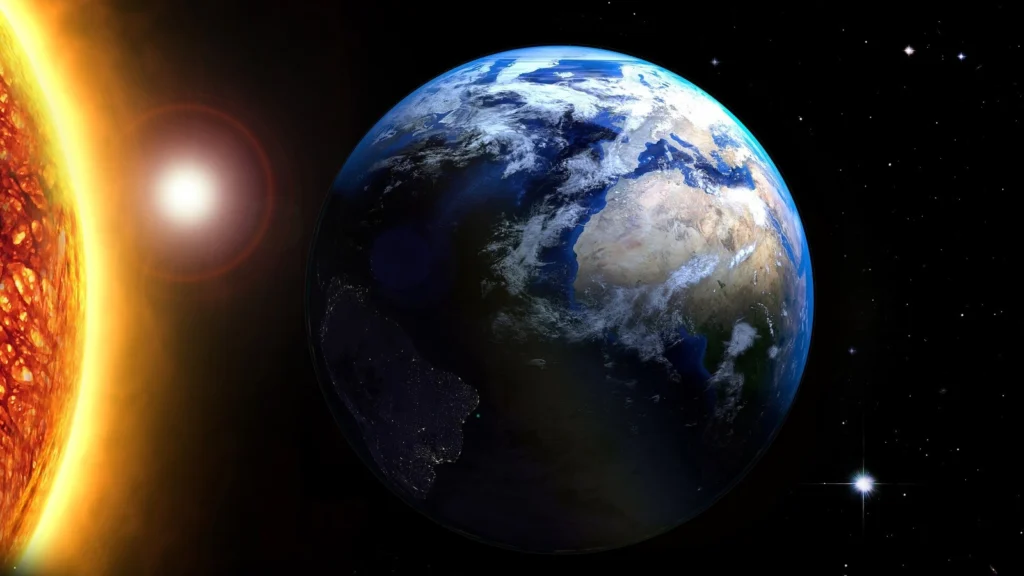
Now envision a different Earth from the one we live on. If our blue planet were closer to the Sun, the current distance of 149.6 million kilometers shortened by tens of millions of kilometers, the temperature would become scorching, water would evaporate, and the atmosphere would be burned away like that of Venus. On the other hand, if Earth were much farther away, it would be engulfed in ice, its oceans frozen, resembling another version of Mars. In either case, life would hardly take shape.
And what if Earth did not rotate on its axis? At present, the planet takes 24 hours to complete one rotation, giving us day and night. If this movement ceased, one half of Earth would be scorched under the Sun’s rays, while the other half would be eternally covered in darkness and ice. No creature could withstand such harshness.
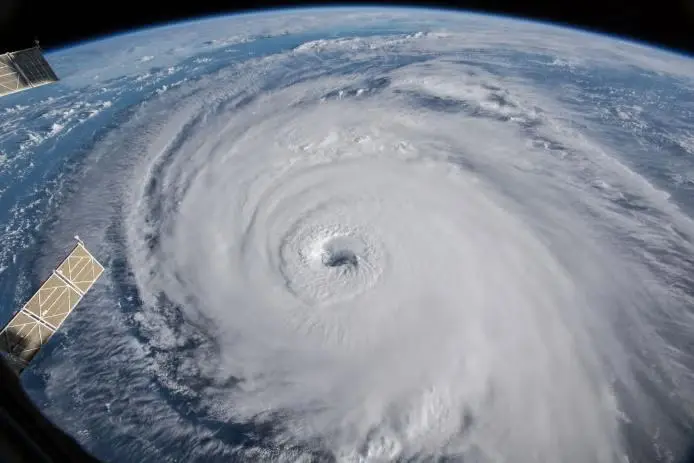
Even if Earth still rotated but did so faster or slower, life would be nothing like it is now. The current speed at the equator is about 1,670 km/h. If it were faster, centrifugal force would thin out the atmosphere, and violent storms would sweep across the planet. If it were slower, days and nights would last for weeks, with blazing heat during the day and unbearable cold at night.
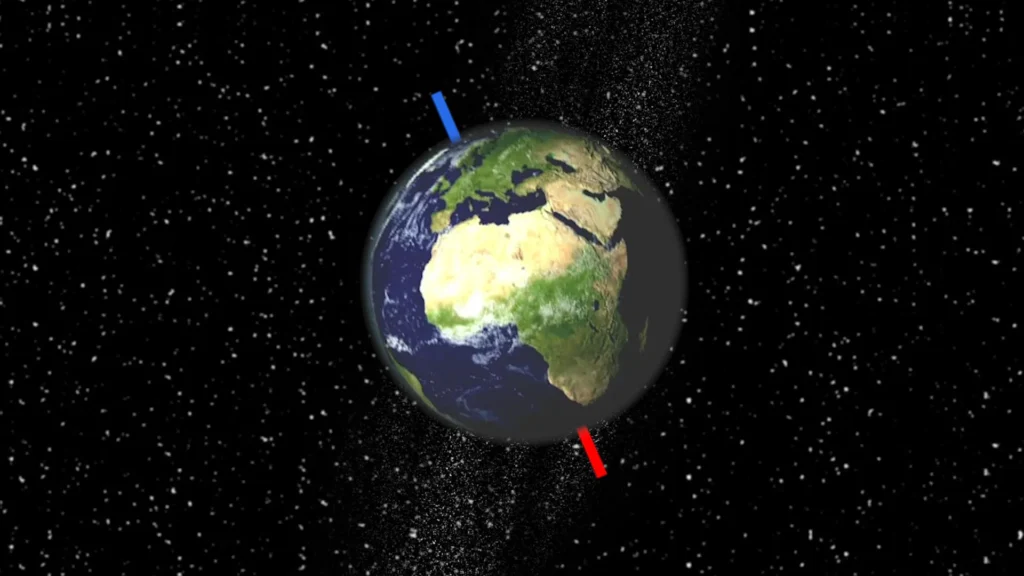
In addition, Earth’s axis is tilted 23.5 degrees relative to its orbital plane. This tilt gives us four seasons, balancing the climate and fostering biodiversity. Without it, there would be no changing seasons. One region would remain forever hot, another forever cold, and life would be far less diverse.
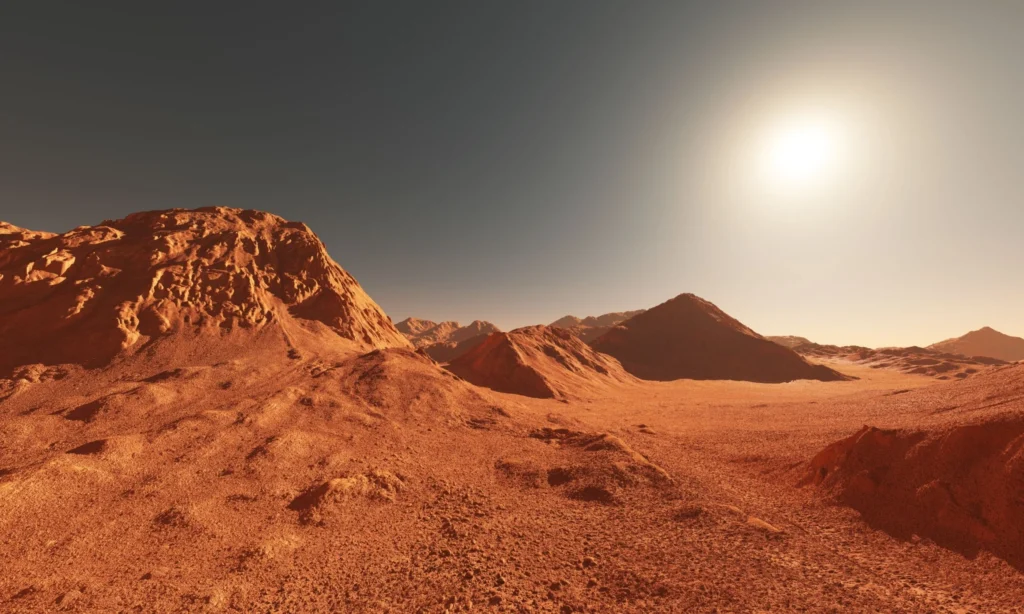
Then imagine Earth without water. Water covers more than 70% of the surface and is the cradle of all living things. Without it, there would be no oceans to regulate the climate, no rain to nourish plants, and no solvent for biological reactions. The planet would be nothing more than a vast, barren desert, like Mars.
And if Earth had no atmosphere, especially no oxygen, complex life such as animals or humans would never exist. The atmosphere not only allows us to breathe but also retains heat, protects us against cosmic radiation, and enables water to exist in liquid form. Without it, the planet would be a lifeless wasteland.
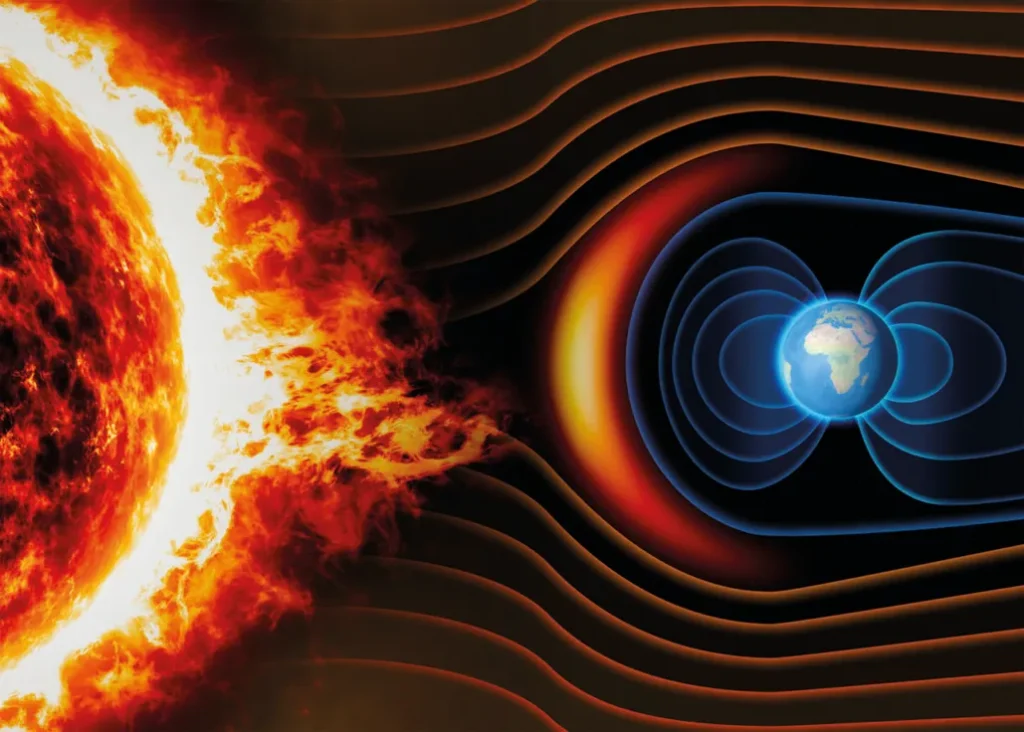
We also rarely think of the magnetic field, yet it is Earth’s immense shield. Thanks to the magnetosphere, the atmosphere is not blown away by solar winds, and cosmic radiation can destroy life. Without it, Earth might have become another Mars – cold and desolate.
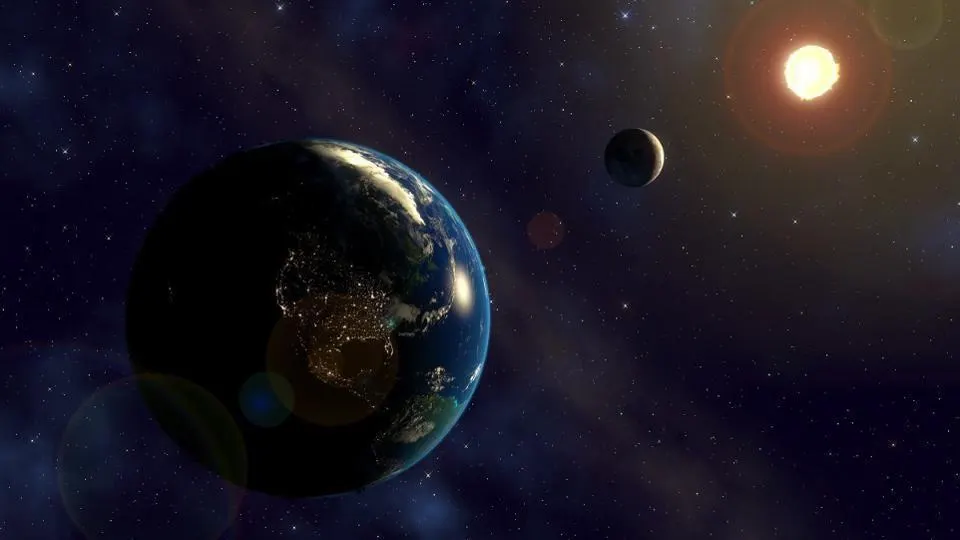
And there is one more extraordinary factor: the Moon, Earth’s only natural satellite. Thanks to the Moon, tides rise and fall regularly, helping regulate the climate and creating conditions for life in the oceans to flourish. Moreover, the Moon’s gravity keeps Earth’s axis stable at 23.5 degrees. Without this companion, Earth’s axis would wobble chaotically, the climate would shift erratically, and life might never have developed in such a sustainable way.
It becomes clear, then, that every detail of Earth plays a vital role, like pieces of a perfect puzzle. If just one piece were missing, life would become more fragile than ever. The universe is vast, with billions of planets, but with all this miraculous balance, Earth is truly the ideal home – and a precious gift that humanity must cherish and protect.
WORD BANK:
miraculous /məˈræk.jə.ləs/ [C1] (adj): kỳ diệu
possess /pəˈzes/ [C1] (v): sở hữu
rotate /roʊˈteɪt/ [B2] (v): xoay, quay vòng
rotation /roʊˈteɪ.ʃən/ [C1] (n): sự xoay, sự luân phiên
tilt /tɪlt/ (v): nghiêng, làm nghiêng
tilted /ˈtɪl.tɪd/ (adj): bị nghiêng
axis /ˈæk.sɪs/ (n): trục
magnetic field /mæɡˈnet̬.ɪk fiːld/ (n): từ trường
satellite /ˈsæt̬.əl.aɪt/ [B2] (n): vệ tinh
in harmony /ɪn ˈhɑːr.mə.ni/ (phr): hài hòa
flawless /ˈflɑː.ləs/ [C1] (adj): hoàn hảo, không tì vết
symphony /ˈsɪm.fə.ni/ [C1] (n): bản giao hưởng
fragile /ˈfrædʒ.aɪl/ [C1] (adj): mong manh, dễ vỡ
nurture sth /ˈnɝː.tʃɚ/ [C1] (v): nuôi dưỡng, ấp ủ
enduring /ɪnˈdʊr.ɪŋ/ [C2] (adj): lâu bền, trường tồn
envision sth /ɪnˈvɪʒ.ən/ [C1] (v): hình dung, tưởng tượng
scorching /ˈskɔːr.tʃɪŋ/ (adj): nóng cháy, gay gắt
evaporate /ɪˈvæp.ə.reɪt/ [B2] (v): bốc hơi, bay hơi
engulf sth in sth /ɪnˈɡʌlf/ (v): nhấn chìm, bao trùm cái gì trong cái gì
resemble sth /rɪˈzem.bəl/ [C1] (v): giống với
cease /siːs/ [C1] (v): dừng, ngừng
eternally /ɪˈtɝː.nəl.i/ (adv): vĩnh viễn, bất diệt
withstand sth /wɪðˈstænd/ [C1] (v): chịu đựng, chống lại
harshness /ˈhɑːrʃ.nəs/ (n): sự khắc nghiệt
the equator /ɪˈkweɪ.t̬ɚ/ [C1] (n): đường xích đạo
centrifugal force /senˈtrɪf.jə.ɡəl fɔːrs/ (n): lực ly tâm
thin out sth /θɪn aʊt/ (v): làm thưa đi, làm mỏng đi
sweep /swiːp/ [C1] (v): quét qua, cuốn đi
blazing /ˈbleɪ.zɪŋ/ (adj): rực rỡ, cháy bỏng
unbearable /ʌnˈber.ə.bəl/ [C1] (adj): không thể chịu nổi
orbital plane /ˈɔːr.bɪ.t̬əl pleɪn/ (n): mặt phẳng quỹ đạo
foster sth /ˈfɑː.stɚ/ [C1] (v): thúc đẩy, nuôi dưỡng
the cradle of sth /ˈkreɪ.dəl/ (n): cái nôi của cái gì
regulate sth /ˈreɡ.jə.leɪt/ [C1] (v): điều chỉnh, kiểm soát
nourish /ˈnɝː.ɪʃ/ [C1] (v): nuôi dưỡng
solvent /ˈsɑːl.vənt/ (n): dung môi
barren /ˈber.ən/ (adj): cằn cỗi, khô khan
complex /ˈkɑːm.pleks/ [B2] (adj): phức tạp
cosmic /ˈkɑːz.mɪk/ (adj): thuộc vũ trụ
radiation /ˌreɪ.diˈeɪ.ʃən/ [B2] (n): bức xạ
liquid /ˈlɪk.wɪd/ [B1] (n/adj): chất lỏng; ở thể lỏng
lifeless /ˈlaɪf.ləs/ (adj): vô hồn, không sự sống
wasteland /ˈweɪst.lænd/ (n): vùng đất hoang
immense /ɪˈmens/ [C1] (adj): bao la, mênh mông
shield /ʃiːld/ [C1] (n/v): lá chắn; bảo vệ
magnetosphere /mæɡˈniː.t̬oʊ.sfɪr/ (n): từ quyển
solar wind /ˌsoʊ.lɚ ˈwɪnd/ (n): gió Mặt Trời
extraordinary /ɪkˈstrɔːr.dən.er.i/ [C1] (adj): phi thường
tide /taɪd/ [B2] (n): thủy triều
flourish /ˈflɝː.ɪʃ/ [C1] (v): phát triển mạnh mẽ
companion /kəmˈpæn.jən/ [B2] (n): bạn đồng hành
wobble /ˈwɑː.bəl/ (v): lắc lư, lung lay
chaotically /keɪˈɑː.t̬ɪ.kəl.i/ (adv): một cách hỗn loạn
shift /ʃɪft/ [B2] (v): thay đổi, dịch chuyển
erratically /ɪˈræt̬.kəl.i/ (adv): thất thường, bất thường
sustainable /səˈsteɪ.nə.bəl/ [B2] (adj): bền vững
puzzle /ˈpʌz.əl/ [B2] (n/v): câu đố
cherish /ˈtʃer.ɪʃ/ [C1] (v): trân trọng, yêu mến
ỦNG HỘ READ TO LEAD!
Chào bạn! Có thể bạn chưa biết, Read to Lead là một trang giáo dục phi lợi nhuận với mục đích góp phần phát triển cộng đồng người học tiếng Anh tại Việt Nam. Chúng tôi không yêu cầu người đọc phải trả bất kỳ chi phí nào để sử dụng các sản phẩm của mình để mọi người đều có cơ hội học tập tốt hơn. Tuy nhiên, nếu bạn có thể, chúng tôi mong nhận được sự hỗ trợ tài chính từ bạn để duy trì hoạt động của trang và phát triển các sản phẩm mới.
Bạn có thể ủng hộ chúng tôi qua 1 trong 2 cách dưới đây.
– Cách 1: Chuyển tiền qua tài khoản Momo.
Số điện thoại 0947.886.865 (Chủ tài khoản: Nguyễn Tiến Trung)
Nội dung chuyển tiền: Ủng hộ Read to Lead
hoặc
– Cách 2: Chuyển tiền qua tài khoản ngân hàng.
Ngân hàng VIB chi nhánh Hải Phòng
Số tài khoản: 012704060048394 (Chủ tài khoản: Nguyễn Tiến Trung)
Nội dung chuyển tiền: Ủng hộ Read to Lead
Lớp luyện thi IELTS online
Bạn đang có nhu cầu thi chứng chỉ IELTS cho đầu vào đại học, đi du học, xin việc hay xin cư trú và đang phân vân chưa biết học ở đâu?
Nếu bạn đang tìm kiếm dịch vụ luyện thi IELTS online với giáo viên uy tín và chất lượng, cũng như học phí phải chăng, thì thầy Trung và Cô Thủy (Admin và dịch giả chính của Read to Lead) có thể là một lựa chọn phù hợp dành cho bạn.
Hãy liên hệ (nhắn tin) tới trang Facebook cá nhân của mình (https://www.facebook.com/nguyen.trung.509) để tìm hiểu về lớp học và được tư vấn cũng như được học thử nha!





